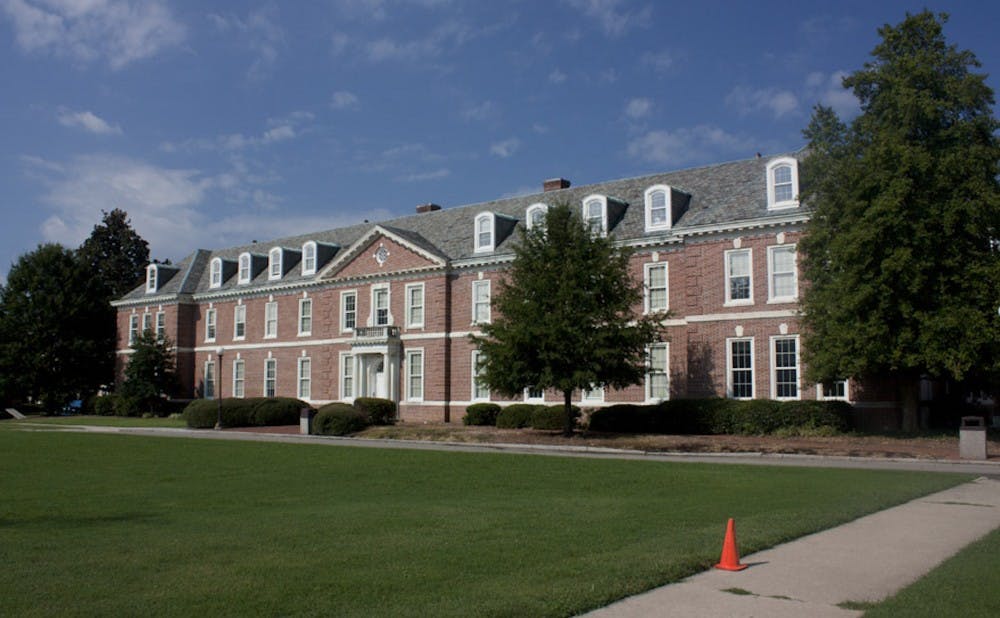I’m usually not a confrontational person. Honestly, most interpersonal communication kind of terrifies me, and I will go to great lengths to avoid it (hence the existence of this column). While I don’t use my column to air my personal grievances, if there’s something I think people should know, I won’t hesitate to write about it (my column on the superiority of Vondy iced coffee is forthcoming). A recent opinion column ran in the Chronicle that claimed characterizing Duke as racist was irresponsible and disrespectful to its students. While I’m all for a good argument and entertaining views that directly contradict my own, this claim is far too irresponsible to avoid addressing head-on.
Duke is racist. Denying this fact is willfully ignorant at best and incredibly dangerous at worst. Higher education is intrinsically racist—it was created as a specific means to reinforce the hegemony of slave owners and perpetuate the socioeconomic superiority of the white upper class. By catering to wealthy families who could pay tuition, educating their children, and creating academic justifications for slavery, universities were one of the primary means by which white slave owners maintained their power in society. After the Civil War, these hallowed institutions maintained their elitism by continuing to deny education to anyone who was not a middle-to-upper class white man. For centuries, and arguably still today, the university was the institution serving as the gateway to the upper class. While attending college is no longer a guarantee of economic or social success, universities such as Duke remain riddled with privilege and reminders of their not-so-morally-upright beginnings.
Unfortunately, we cannot ignore the racism of the past. Recognizing the ways in which Duke perpetuates racism is not “irresponsible stereotyping,” it’s refusal to accept a narrative that seeks to minimize Duke’s responsibility for racial trauma and tension. The root cause of racist incidents is racism—this conclusion requires no “critical thinking.” However, it is worth examining more deeply how Duke’s lack of an institutional backbone and culture of unchecked privilege that makes campus a place where individuals know they can commit racist acts without fear of consequences. Duke is racist, but not simply because Julian Carr’s name still crowns a building on East Campus. Duke is racist because of the institutional and everyday actions it allows to go unpunished.
While a racist joke made “carelessly” might seem like something that is only momentarily uncomfortable and not a “vicious orchestrated attack” on students of color, every racist incident, whether it is a Snapchat story or a racial slur scrawled on a wall, sends the message to students of color that they are not welcome on Duke’s campus. It reminds them that higher education was a space that was unavailable to them for centuries, and even now, institutions do little to affect the racial wealth gap that is entrenched in the American economic system. It reminds them that there are people on this campus who would rather demoralize African-Americans students than recognize the countless Black individuals who have positively impacted Duke. To me, and hopefully most people with a relatively sound moral compass, this is vicious. These incidents are attacks designed to provoke fear. And Duke administration allows the perpetrators of these crimes to walk free with nothing more than a slap on the wrist.
There may not be an “organizational conspiracy” to manufacture racist incidents on campus, as the author of this column claims. However, Duke’s inaction on removing markers of white supremacy from campus and allowing racism in its student body to go unpunished is indicative enough of its permissive attitude towards racism. The fact that these incidents occur on a regular basis is even more telling. Are they truly ‘isolated’ or ‘random’ if they happen every semester?
The argument that Duke’s diverse student body can miraculously eradicate Duke’s racist past and present, frankly, is bullsh*t. The argument that Duke’s racism is in the past and not worth criticizing the university for, is equally ridiculous. Claiming that Duke is racist by no means disrespects Duke students. Instead, it serves as a call for students who care deeply about their university to critically reflect and work to make it better. It is a reminder of where we come from as an institution and just how far we have to go to move from a Duke for some to a Duke for all. As Duke students and community members, we must work to make this campus a place where individuals of all races feel safe, welcome, and valued. We must address both the toxic legacy of racism entwined in Duke’s history and the racism that still clouds our campus in order to move forward as a community. Even someone like me can tell it’s an issue worth confronting.
Ann Gehan is a Trinity sophomore. Her column runs on alternate Mondays.
Get The Chronicle straight to your inbox
Signup for our weekly newsletter. Cancel at any time.

